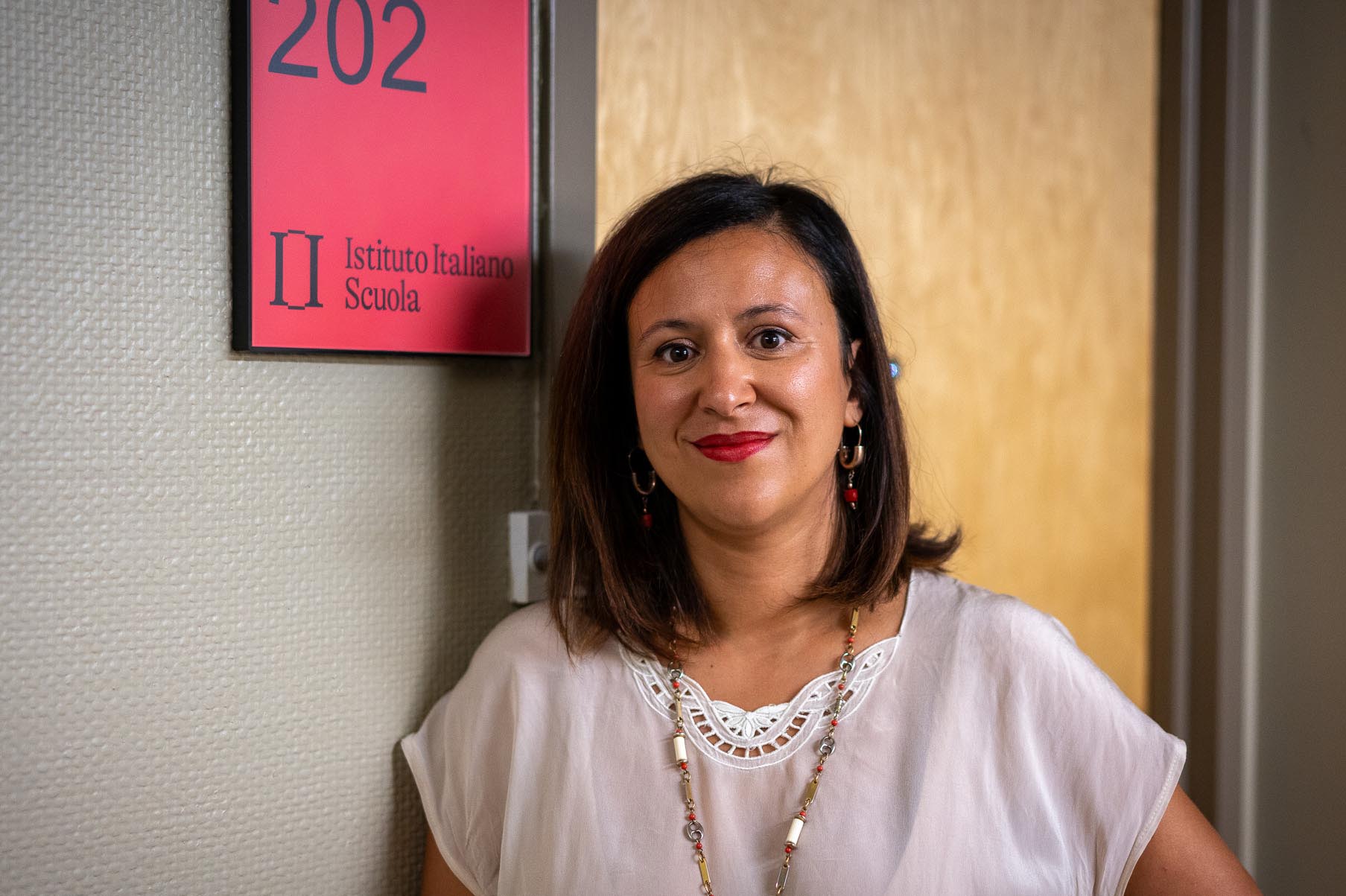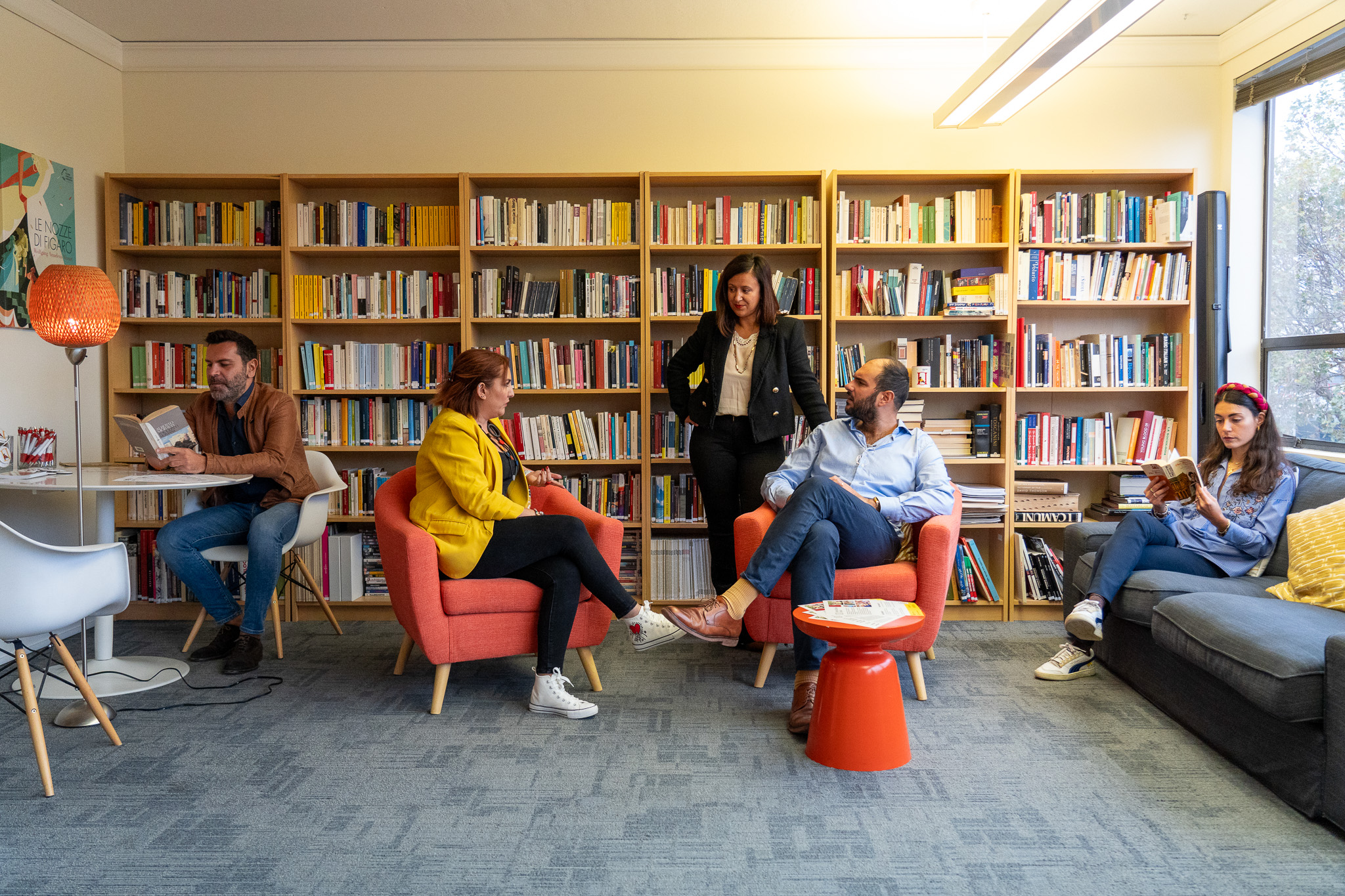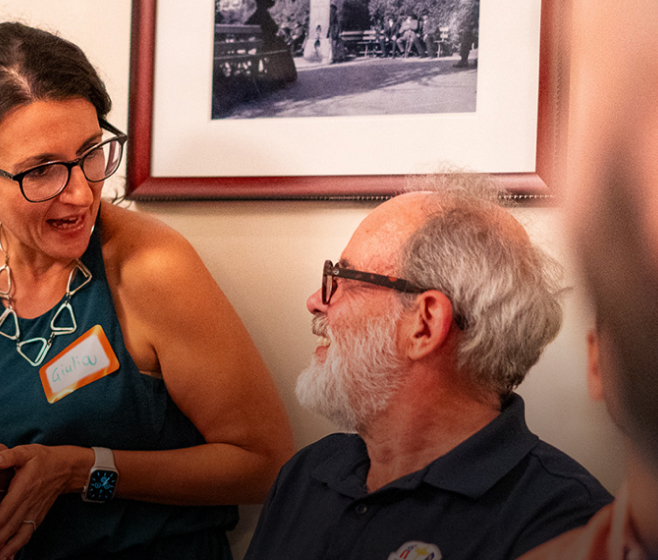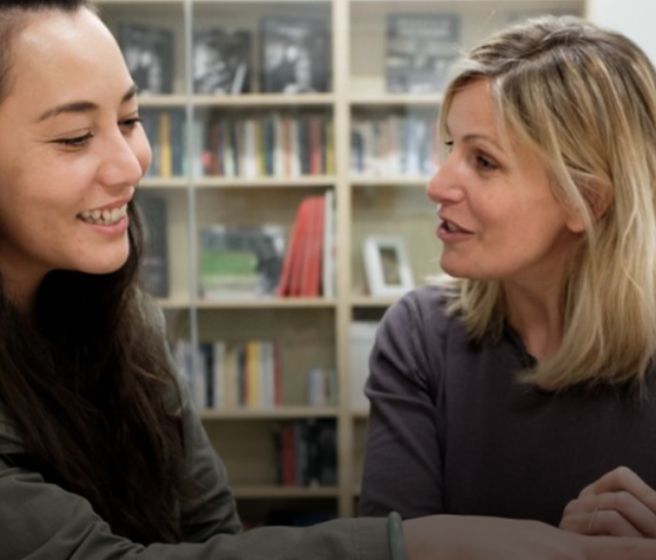
Meet our Executive Director: Martina Di Biase
We’ve had the pleasure of introducing several of our teachers to our blog readers, but now it’s time to learn more about Martina Di Biase, the Executive Director of IIS. Martina is a charismatic leader who is guiding IIS towards new goals and greater visibility and achievements. In addition to her role as Executive Director, Martina also teaches our popular Leggiamo Insieme online group, and you can always find her at our events and in our offices.
Let’s hear directly from Martina and discover more about her.
- How long have you been the Executive Director of IIS? What is your goal in managing the school?
I became the Executive Director of the Istituto Italiano Scuola (IIS) in October 2021. My start also coincided with a significant change in our Board of Directors, which allowed me to completely renew the image, brand, and strategy of the Institute. Together, we established that our main goal was, and still is, to follow our mission to promote the Italian language and culture in the Bay Area and beyond, moving away from the stereotypical image of Italy that many are commonly exposed to. Moreover, we aim to create a community, either in-person or online, of people who want to have an immersive experience in contemporary Italian culture, not only through language but also through all the cultural events and workshops we organize.
- What do you think is the main reason for a student to choose IIS instead of other schools?
The main reason a student chooses IIS over other schools is that IIS is not just a school. IIS is an open window to Italy, where one can have immersive experiences, not only in person in the heart of North Beach in San Francisco but also online. All our teachers are native Italian speakers with degrees from Italy, which is not something all schools can claim. And let’s not forget that being part of the IIS community opens the door to numerous discounts at our many partners across the United States. To call it merely a school is an understatement; IIS is much more—it’s a truly immersive experience in Italian language and culture.
- What do you look for in a teacher to become member of the IIS team?
To become part of our team, you need to be an extraordinary teacher because, as I’ve mentioned before, we don’t just teach a language; we are ambassadors of authentic ‘Italian-ness.’ We have the highest number of special classes in the United States, ranging from art and literature to geography, cinema, and music. To be one of us, you certainly need professionalism, but also passion and creativity, because we don’t limit ourselves to just studying a couple of grammatical formulas.
- You are a teacher yourself, with several years of experience. What made you choose to become a teacher? Which is, in your opinion, the best way for a teacher to have a successful outcome within a class?
I began teaching Italian to foreigners while I was still at university, initially thinking of it as a hobby, which then became my main profession and for which I earned specialized degrees. I loved teaching in Italy to foreigners because each person brought a piece of the world with them, helping me to broaden my cultural horizons. Now that I am the ‘foreigner,’ I enjoy bringing my piece of the world, my Italy, to my students.
In my class Leggiamo Insieme, we do just that: we read Italian novels together, and through the books, we learn about Italian history, society, and culture.
I think that to be successful in a class, a teacher must be interesting. There is nothing worse than a boring, rigid lesson where phrases and grammatical rules are listed impersonally and without context. Languages are alive and learning a language means learning to think in another way. A teacher must convey this; otherwise, it becomes just a transfer of knowledge, which nowadays can be done by AI.

- Where are you from? What do you appreciate the most about your hometown?
I am from Pescara, in Abruzzo, a city I left after high school to attend university in Bologna. Pescara is a small city on the Adriatic Sea, home to great writers like Gabriele D’Annunzio and Ennio Flaiano. It’s a quiet place, definitely off the tourist trail because, for being in Italy, it’s a relatively new city. It’s a lively seaside city, especially in the summer when it transforms into the epitome of the Italian summer—filled with swimming, walks on the beach and along the main street, aperitifs, ice creams, and stylish clothes. What I love most about Pescara is its carefree holiday vibe. Pier Paolo Pasolini once said of Pescara, ‘Pescara is splendid. I believe it is the only case of a city, a real city, that exists entirely as a seaside city. The people of Pescara are proud of it,’ and I agree with him.
- Is there a monument or place that you recommend our students to visit if they go to Italy?
I love Bologna, the city where I studied and where my son was born. I recommend it to everyone who visits Italy because it’s an extraordinary city, full of history, culture, and phenomenal food. The University of Bologna was the first university in Europe, and this has always given Bologna a place at the forefront of culture—modern, liberal, transgressive, and at the same time classically beautiful. Walking from the city center, through the longest portico in the world, to the church of San Luca, and from there looking over the city and its beautiful surrounding hills, is an experience I highly recommend.
- What is your favorite Italian dish? Do you like cooking?
I love to cook, but above all, I love to eat, and it’s hard for me to think of just one favorite dish. In fact, there isn’t a single dish that I don’t like. If I really had to choose, I am very fond of the simple dishes of Abruzzese tradition, as my grandmother used to cook them, like timballo, sagne with chickpeas, pasta and peas… very simple things that remind me of my childhood.



